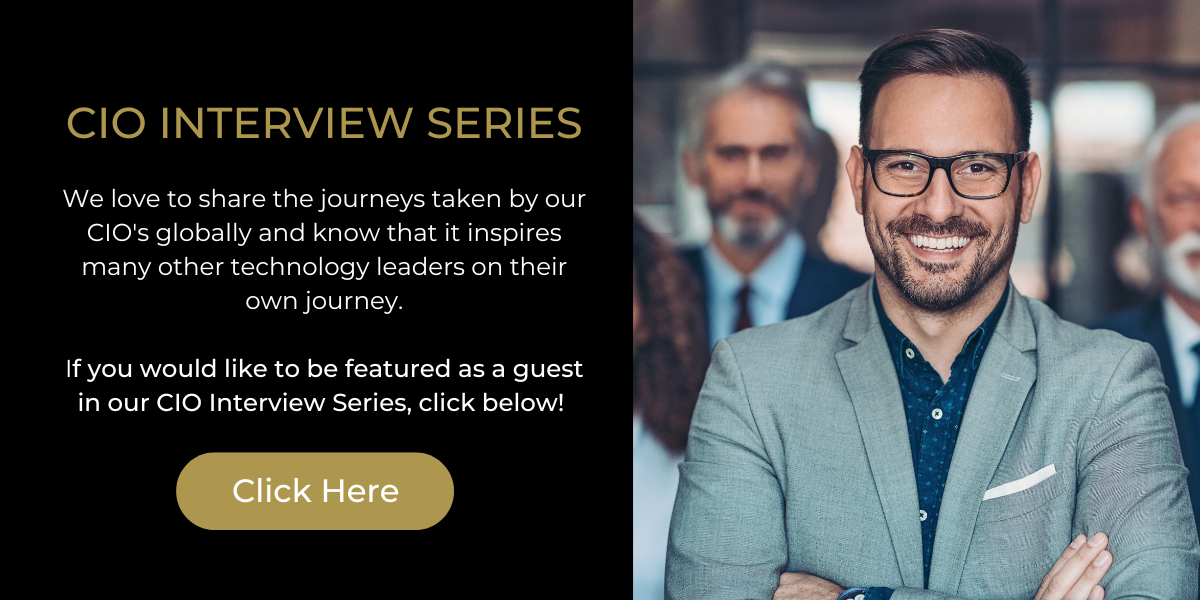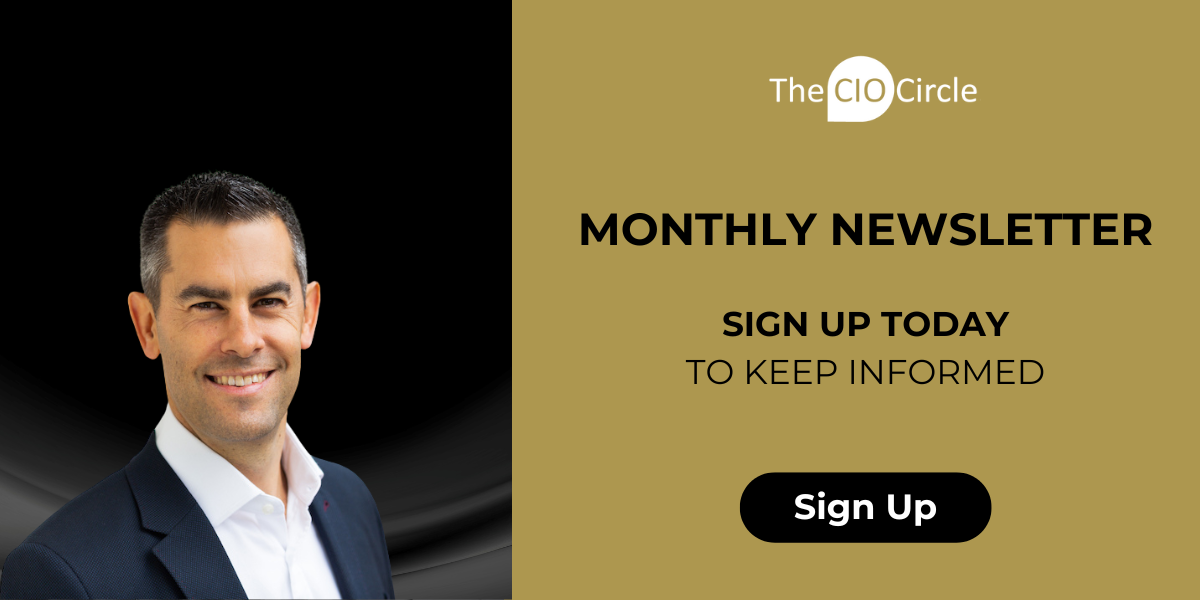LOOKMAN FAZAL
Chief Information & Digital Officer at NJ Transit
Can you please provide a little introduction about yourself
I currently serve as the Chief Information and Digital Officer of NJ TRANSIT Corporation, which is based out of Newark, New Jersey. I’m proud to say I have more than 20 years of IT leadership experience, with a specific expertise in increasing bottom-line profitability by leading implementation and strategic deployment of business applications and technology environments. I pride myself on being a dynamic leader who positions himself as a coach, team player, and mentor in the Information Technology sector.
Prior to NJ TRANSIT, I served as the CIO of Argo Turboserve Corp, and previously held senior and executive leadership positions at EmblemHealth, Avaya, Lucent, and Novartis. I also have 10 professional certifications and hold five patents, and I’ve been recognized as 2020’s StateScoop GoldenGov: State Executive of the Year and as one of 2020’s HMG Strategy Global Technology Executives Who Matter. Outside of my work at NJ TRANSIT, I serve as a board member for Evanta, as well as HMG’s 2022 New Jersey CIO Executive Leadership Summit and their 2022 New York Global Innovation Summit. I’m also an Ambassador with CXO Global 100 and previously served as a Central NJ Junior Achievement Board Member.
What has your journey to your position been like? What path have you taken?
My journey toward my position at NJ TRANSIT was a varied one. I’ve been a professor, served in positions that worked with both the commercial and non-commercial industries, and led IT initiatives that have touched nearly all aspects of the global supply chain. But it was my experience in the health and technology space that helped me understand that I’m most passionate about working on technology initiatives that have a direct, positive impact on people’s lives.
My time in the private sector gave me the insight needed to implement rapid digital transformations — and it also helped me understand the true weight that IT can have on an individual’s day-to-day, whether that be their health or their commute. In our industry, we have a responsibility to protect, empower, and serve the people who trust us with their digital lives, and I’m so thankful for each step of my journey that helped to prepare me for my work at NJ TRANSIT.
Has it always been your vision to reach the position you’re at? Was your current role part of your vision to become a tech leader?
I knew early on that I was called toward leadership, and a part of what drives me as a tech leader is a desire to be challenged. But after spending the beginning of my career in various industries, I began to think about how those principles could be applied to NJ TRANSIT. I realized what brings me real satisfaction is to be a service to my fellow human, to make people’s lives easier through technology. My work at NJ TRANSIT allows me to have a real impact on our riders — and by pushing forward initiatives such as mobile ticketing and touchless validation, I’m able to create a ripple effect that will continue to influence transportation for decades to come.
My goal is to make the lives of each and every rider we serve easier than it was the day before. I can’t think of anything more rewarding as a tech leader than creating teams and strategies that have a lasting impact on the world.
Have you had a role model or mentor that has helped you on your journey?
My best mentor in life has been my mother. She sacrificed so much to prepare me for my career as an IT leader, working two jobs to make sure I could afford the education to make myself successful. She always stressed to me that I needed to continuously learn and seek out new growth opportunities. She didn’t do this just with words, but with her actions as well. Although she wasn’t traditionally educated, she made sure that she provided herself as an example, constantly taking on new challenges and experiences. Even now, at 80 years young, she is still adopting and learning new technologies.
I am constantly impressed by her ongoing ability to adapt to the shifting technology landscape, and love that I can connect with her in so many different ways.
How do you see the role of the technology leader evolving over the next 5 years?
People are becoming more and more empowered by technology every day — which means they are more dependent on technology as well. As technology leaders we need to prepare for these full lifestyle integrations and stay ahead of the curve when it comes to people’s expectations for how IT serves them. This means acknowledging that we aren’t just leaders in a professional sense; we are actually helping to shape peoples’ lives. As our influence in day-to-day life expands, so will our responsibilities.
We must ask ourselves moral questions, such as: Does this benefit the world, not just the bottom line? What impact will this have on the future of technology across the world? How culpable are we for security risks? I believe in the IT leaders of the future, and the next decade will require us to step up in a way we have never seen before.
What skills do you think leaders of the future will need in order to thrive?
I believe the two main things needed from IT leaders are empathy and a hunger for continuous learning. It’s an absolute imperative that you understand the needs of the people who use your services as well as the needs of your team. Balancing them is often a tightrope act, but is one of the most important functions of being an IT leader. Additionally, maintaining a hunger for continuous education will help you grow in a variety of ways, allow you to serve those needs effectively, and earn the respect of the people using your services and the IT professionals who serve them.
How do you keep current with new skills, technologies and personal development?
Personally, I have made it a priority to keep my education at the forefront of my professional and personal development. Recently I have taken a keen interest in furthering my knowledge of IT strategy.
I researched some of the best online courses available and settled on Harvard Business School as they had several courses that dove into global strategy and sustainability, two areas I think all modern IT leaders should be focusing on. I’ve also been connecting with other IT leaders and professionals whose work I respect, so that I can continue learning from those who are also achieving their professional goals and innovating within our industry.
"Listen to your team, listen to the people using your services, listen to your mentors and teachers."
If you were mentoring a leader of the future, what advice or guidance would you give to help them on their way?
Actively listen! Listen to your team, listen to the people using your services, listen to your mentors and teachers. Everything you will need to know about adapting technologies to solve problems will come from them. Remember that you do not always know best. It’s important to recognize that you were put in a position of IT leadership to serve, not to be served. You will be amazed by the results you will see by framing yourself as a servant to your team, trusting them to solve problems, and helping them achieve their goals.
That is absolutely the best way to reach new heights as an IT leader. Here’s the thing I hope future leaders will keep in mind, and I’m paraphrasing one of my favorite quotes here, but if you get one percent better each day for one year, you'll end up thirty-seven times better by the time you're done. Small improvements don't seem to make much of a difference at the time, but they certainly add up over the long-term.
Is there anything in particular that you would still like to achieve in your career or what is the next step on your journey?
I still want to get Fortune 500 technology partners more involved in mass transportation. This is a challenge for a variety of reasons, as it requires them to invest in the overall betterment of the world rather than just seeking out bottom-line profits, but I still believe it is possible. When we’re able to get this type of large-scale buy-in from businesses that are larger than us or are focused purely on technology, it unlocks new opportunities. I know I’m personally invested in making these types of relationships work and will continue to search for new ways to build these connections. I hope my efforts will inspire others to try and achieve the same.
If you could change one thing in the world, what would it be?
I would change the culture of IT leadership to be vastly more servant-style in its approach to how we deal not just with our employees, but with the humans we serve through technology. By putting people first, I truly believe we can cause impactful, quantitative change for the betterment of the world. Too often IT leaders can get focused on what their expertise tells them is the way to go about things.
If you want to leave the world in a better place, as I do, it is so important to place others above yourself. I want IT leadership to recognize that by serving others, you can make a much larger positive impact on the world through technology than you would have by just going to work and handing out orders. My purpose on Earth is to help anyone in need and to improve their lives. Being an IT leader is such a place of privilege that gives us a real opportunity to achieve that goal. I want every single one of us to get passionate about changing lives for the better, and I believe the absolute best way to do so is to turn yourself into a servant of the people and their needs.
A big thank you to Lookman Fazal from NJ Transit for sharing his journey to date.
If you would like to gain more perspective from Tech Leaders and CIOs you can read some of our other interviews here.
April 3, 2024


